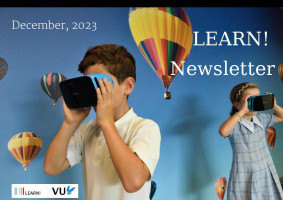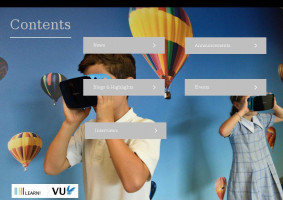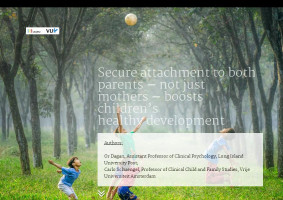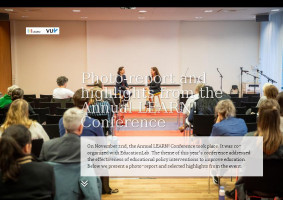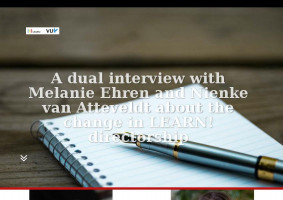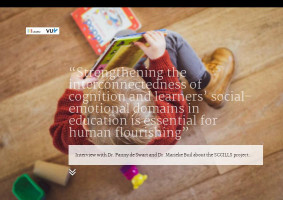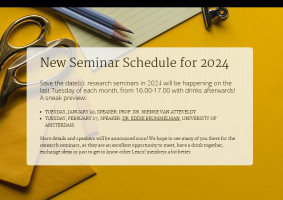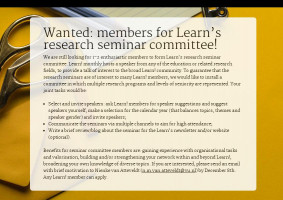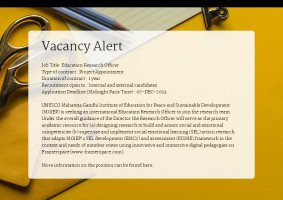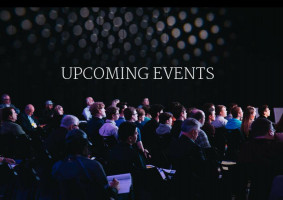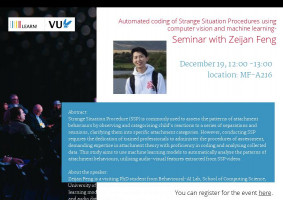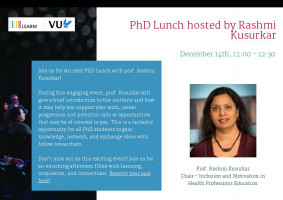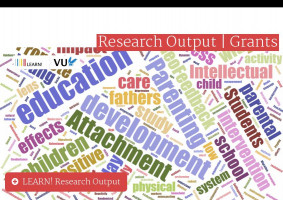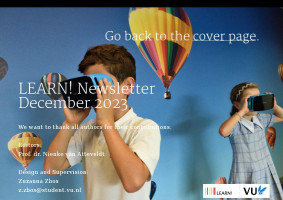(2)_w500_h600_1.jpg)
You worked as the director of LEARN for the past four years. What was your motivation to take up this position?
I started working at the VU in 2019 after 7 years as an associate and full professor at University College London and this role was part of the job description. Martijn Meeter had led the institute before me but he had a number of other leadership positions and a really heavy workload so handed over the leadership of LEARN! to me when I arrived. I loved the opportunity to work with colleagues in setting our research agenda and create a vibrant community and interdisciplinary portfolio of work and have enjoyed doing so over the past four years.
How has the institute changed over these years? In what ways have you personally developed during that time?
When I arrived, LEARN! was particularly known for our past research around educational neuroscience and I’ve invested mostly in broadening our work and including the breadth of disciplines we have in the institute. In the first year I worked with our programme leaders to establish our new mission around Bronfenbrenner’s model of human development which provides a really valuable frame to position the entire portfolio of our work. We also increased the level of activities and communication over the years, and connections to external stakeholders (including through our advisory board with -inter-national colleagues) and that has helped in improving our visibility, both to external stakeholders as well as colleagues within the VU. I’ve had leadership roles in the past, but this was the first one which involved leading a research institute that is set up as a network of colleagues across departments and faculties and the specific opportunities and challenges that come with that. Rather than coordinating the work through centralised decision-making and line management, you really need to be able to motivate people to get involved in the institute and provide more informal incentives or opportunities to ensure engagement.
Could you share some highlights from your four years of work as the LEARN director?
A large part of my tenure as a director was leading the institute through the pandemic. This was a difficult time as I had only just started working at the VU and hadn’t had a chance to establish strong relations or a sense of the place. But the pandemic also offered good opportunities to showcase the relevance of our work and ensure our relevance to society. At the start of the pandemic we initiated a small rapid response network of practitioners working in schools and with parents to know the challenges they were facing. We used these weekly online check-ins with them to identify themes that connected to our research and reached out to colleagues to write brief blogs on these (e.g. student well-being, how to engage in online learning etc). This eventually also led to a large research grant to evaluate all the catch-up programmes in primary and secondary education with further work on improving evidence-informed education.
What do you consider to be your most significant accomplishments during your tenure as the director?
Our work during the pandemic is something I’m proud of, particularly for how it allowed us to bring a group of colleagues together with different backgrounds and expertise and to respond to one of the then biggest challenges in education. Even when we were all working from home, we were able to work with schools and school boards and share our findings and observations continuously with national stakeholders. To me this was an example of how you can do both rigorous research that is also immediately relevant to the field.
Were there any specific challenges you had to face? How did you overcome those?
The biggest challenge of leading a research institute that is set up as a network is to get people on board and create commitment. It’s a continuing effort to find events and ways of working that are motivating to colleagues, that they want to be involved in and want to identify with.
What future plans do you have on your career path?
I’d like to have a bit more time for my international comparative research. And who knows what’s next..
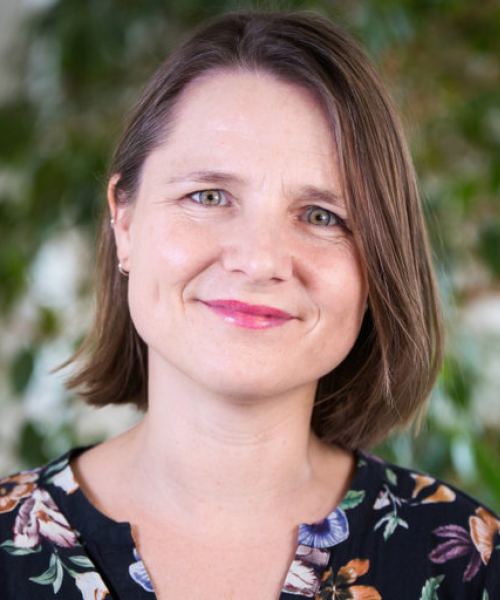
Could you briefly describe your academic and professional background and your previous role at LEARN?
I did my PhD research at Maastricht University in cognitive neuroscience, during which I learned to work with a variety of neuroimaging methods. The topic was reading and the learning of letter-speech sound mappings, so already then I was interested in learning and development. After Maastricht I obtained funding to spend some years at Columbia University in New York, where I did more basic research on how the brain integrates what we see and what we hear. I discovered that I did not want to continue doing very basic research, and got more and more interested in how the results of neuroimaging methods can (and can’t) be useful in addressing societally relevant questions. This thinking got materialised in a book I wrote with two colleagues (Kijken in het brein - mythen en mogelijkheden) and also in changing my research field into Educational Neuroscience when I obtained my position at the VU. Since then, I founded the Lab of Learning, where we combine multiple methods to study how children can develop into motivated and resilient learners. I joined Learn! first as a member and then as leader of the program Educational Neuroscience: brain, learning and development, which brings together researchers from different departments with the joint goal to understand the social-emotional, motivational and meta-cognitive factors needed for children to do well and feel well in school.
What motivated you to become the new director of LEARN?
Learn’s mission to bring together colleagues from the behavioural, biological, social, medical and educational sciences to understand learning and the context wherein learning happens fits very well with my own vision regarding the importance of connecting disciplines and perspectives. Research Institutes such as Learn! are crucial for such endeavours to succeed as they provide the conditions to do exactly this; by connecting researchers beyond their own niche, and facilitating activities and initiatives to exchange ideas and collaborate, also with non-academic stakeholders. Only in such joint endeavours can we tackle complex issues and reach societal impact. After being program leaders for several years, it felt like a great next step to become the scientific director, to contribute to the Institute’s mission even more.
What is your vision for the institute for the upcoming years and how do you plan to achieve it?
My vision is to continue enabling what Learn! is already very good at, and working on the aspects that can still improve. The timing is ideal with the positive and constructive report we received from the audit committee earlier this year. My plan is to start working on a new strategic plan for the next years, together with the program leaders and Learn! members. In this joint effort we will refocus the Institute’s aims and define strategic areas, and make an action plan for improving our visibility and including more researchers in and perhaps outside the VU. Now that the pandemic is behind us, I will also invest in motivating members to join the face-to-face opportunities provided by Learn! to interact and exchange ideas.
Since your daily work and research focuses mostly on educational neuroscience, are you planning to incorporate more of these aspects into the main mission of the institute?
Not necessarily as Learn!’s strength lies in the interdisciplinarity. The brain level is one part of the puzzle, but we need to connect all parts.
Last but not least, I would like to express a big thank you to Melanie for the excellent and important work she has done for Learn! during her term as scientific director. Her leadership is a great example and I couldn’t wish for a better start of my term as director; Melanie leaves Learn! as the high-quality and viable research hub it is today. Thank you Melanie, and I’m very glad to keep collaborating within Learn!.
